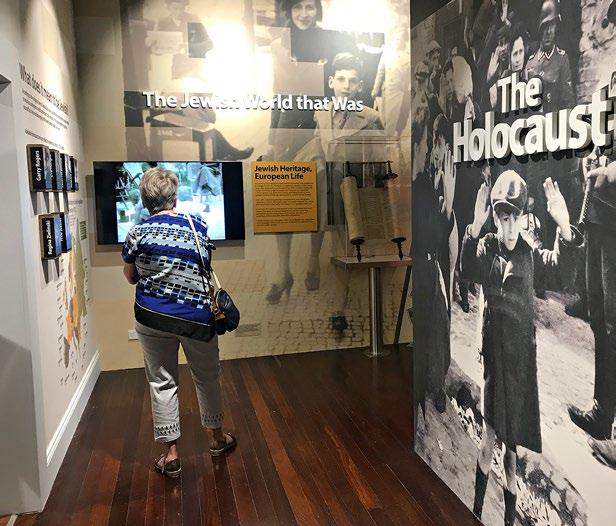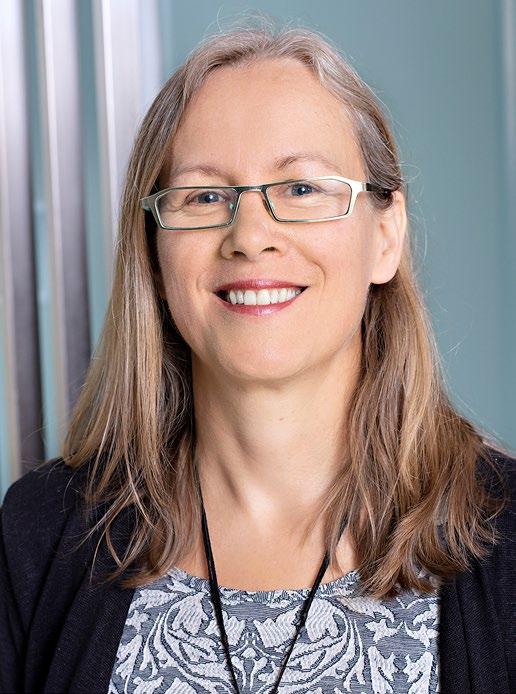
2 minute read
A new Holocaust museum for Adelaide
Adelaide Holocaust Museum opens its doors

Advertisement
Photos: Pauline Cockrill
The new Adelaide Holocaust Museum and Andrew Steiner Education Centre (AHMSEC) was officially launched in November 2020 in the heart of the city. With the generous support of the Catholic Archdiocese the museum is housed in the historic Fennescey House.
IAHMSEC honours the six million Jewish victims of the Holocaust and millions of other victims of Nazism. Its program reflects the necessity to nurture human rights to prevent such atrocities in the future. By telling the stories of the Holocaust, AHMSEC aims to educate and inspire South Australians to stand up against antisemitism and racism, and actively contribute to a fairer, more just and compassionate world.
AHMSEC is inspired by the vision and work of Andrew Steiner, an Adelaide-based sculptor and Holocaust survivor, who has offered Holocaust commemoration and reflection to South Australian secondary schools for the past 30 years. With his late wife Helen, Andrew founded the Remember the Holocaust Compassion for All Foundation to establish a capital fund for the development of the museum.
The permanent, self-guided Holocaust exhibition is posed as a series of questions to stimulate critical thinking and help visitors, especially young people, to understand how and why the Holocaust happened. Throughout the exhibition visitors encounter historical artefacts, personal objects and photographs which intersect with the stories of six Adelaide survivors.
The museum features four galleries: the Anne Frank Gallery, endowed by John and Pauline Gandel, which houses the permanent collection; the Lefmann Gallery which features the stories of the six survivors; the Jack and Robert Smorgon Families Foundation Gallery which currently houses the museum’s education centre; and the Franz Kempf Memorial Gallery, a smaller gallery dedicated to the memory of Franz Kempf and featuring his Holocaust Series.
AHMSEC’s permanent exhibition traces the history of the Holocaust and encourages critical thinking around themes from the Holocaust that remain relevant to issues in contemporary society, such as hate-speak, antisemitism, racism and acts of terror right. Its education program, with financial assistance from the South Australian Department for Education, is now being rolled out, offering school curriculum-tailored Holocaust education programs.
AHMSEC Chair Nicola Zuckerman said: ‘The aim of our programs is to demonstrate that antisemitism existed before the Holocaust, still exists today and is in fact, increasing in prevalence around the world. Combating antisemitism and racism in all its forms is a virtue AHMSEC hopes to instil in all who visit the museum.’










